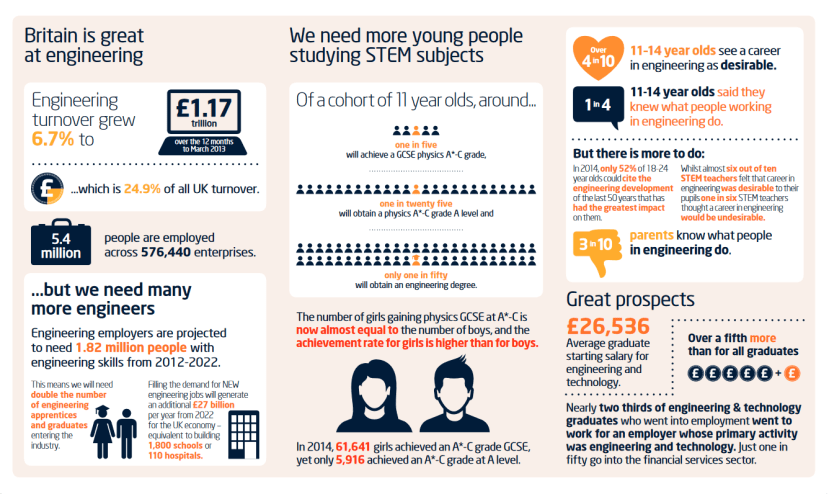Engineering, Forging For The Future
Follow articleHow do you feel about this article? Help us to provide better content for you.
Thank you! Your feedback has been received.
There was a problem submitting your feedback, please try again later.
What do you think of this article?
The growth of jobs available globaly is directly linked to advances in Science, Technology, Engineering & Maths. It took 700 engineers to develop the iPod. The development path from the iPod to iPhone and on to the iPad led to the creation of 700k jobs worldwide.
We need more engineers!
Research from EngineeringUK that investment in UK Engineering will generate £27Billion per year from 2022 onwards, the equivalent of 1800 schools or 110 hospitals.
Saturday morning. I have to take my daughter to her dancing lesson where she and her identically dressed group, pirouette and fouette around a room as only a herd of seven year olds can. Don’t even mention the dance shows with their subsequent costume purchases, tickets for extended family and friends as well as the badly filmed (“No Cameras In The Auditorium Please”) DVD. But obviously my daughter loves it and I’m not going to stop her.
So how do I make her want to be an engineer?
Well clearly, she can dance all she likes and I should not “make” her do anything for fear of rebellion – I’ve a story about Motorhead’s Lemmy & a daughter’s rebellion, but that’s for another day.
So how do I persuade her that science, technology, engineering are all things that are exciting, interesting and wonderfully rewarding to the world?
I had the pleasure of listening to Dame Sue Ion and other thought leaders in Science & Technology at the Sci-Tech Daresbury Corporate Day last week. The World needs engineers. The UK needs engineers. But, we in the UK have a challenge.
When a teenager goes to the Joderal Bank Transmission Festival, sees the science alongside the bands they have come to jump around to and thinks “That’s cool, I want to do that!” it’s too late. In the words of Sue, “We’ve lost them.”
We do not invest enough as a nation to make Science, Technology, Engineering & Maths fun, engaging, desirable at a young age.
The Royal Academy of Engineering forecasted a need for 100k engineers, scientists and technologists for 2012-2020 just to maintain current employment numbers. Engineering Employers have estimated a total requirement of 1.82million people with engineering skills over this period.
So where are we at the moment?
We start with 650k children taking GCSEs. That number is almost halved to 300k achieving A*-C grade in 2 sciences and maths. Two years later there are less than 30k taking A Level maths & physics and another 30k taking engineering, IT or construction apprenticeships at level 3. Moving onto degree level in engineering that 30k drops to 15k of UK students. Who then become 8k engineering graduates going into professional engineering occupations.
The gender split is even more startling.
In 2013 21% of those doing A level physics were girls. Last year 12,800 males started an engineering apprenticeship compared to 400 females.
The infographic below comes from EngineerUK. 
We need to do more to make STEM accessible to the Primary Years.
My daughter has a Raspberry Pi. She codes in Python. She sings along to One Direction at great volume. She plays Minecraft with her brother. We have a toy drone that we keep trying to get more than two feet off the ground. I’ve given her a copy of DS Mechanical so that she can pull and push shapes into designs that she wants to print off on a 3D printer.
We’re both learning.
Clearly this is a view of the UK. But, engaging children in STEM is a Global Challenge.


